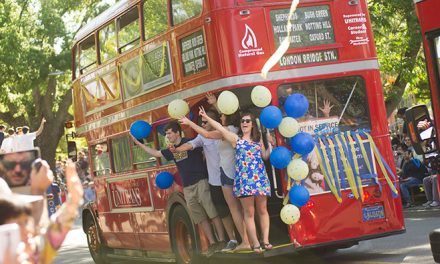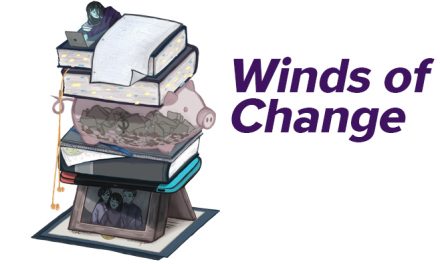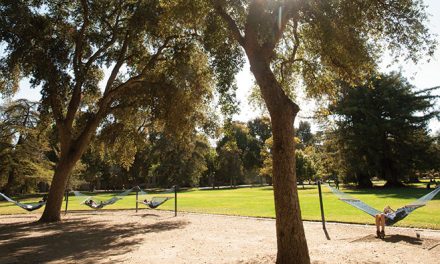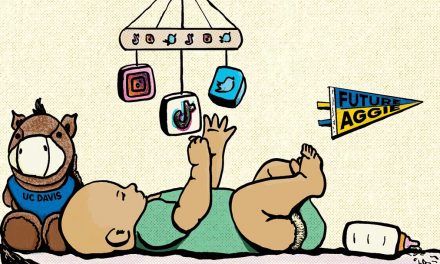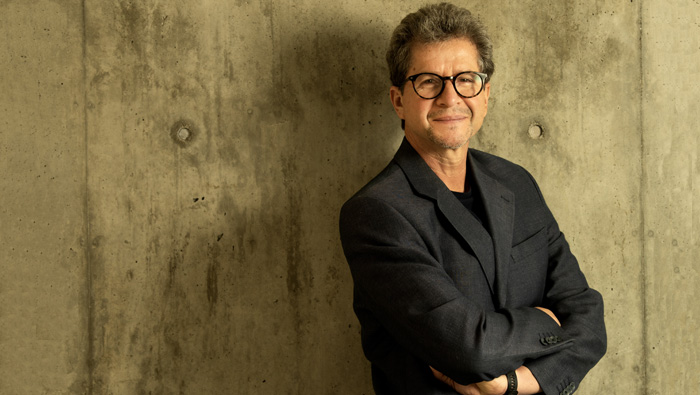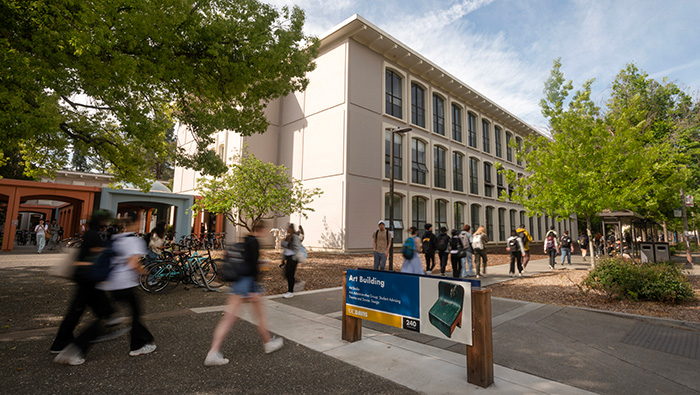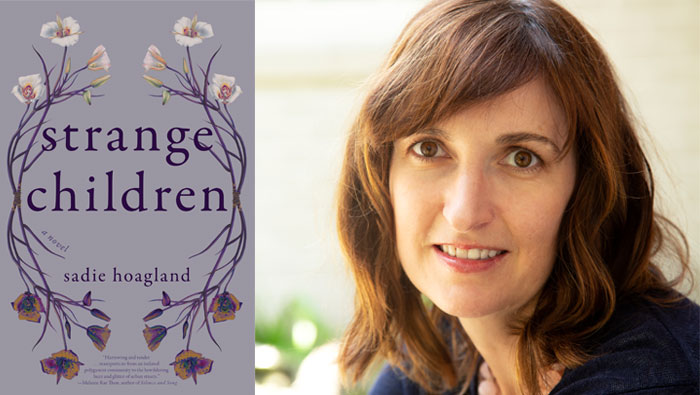
Examining Beliefs
In her debut novel, Sadie Hoagland, M.A. ’09, tells a fictional story of faith, cruelty and redemption through eight adolescent narrators.
Strange Children (Red Hen Press, 2021) is set in a polygamist commune in the desert — a girl and boy fall in love, breaking religious law. After they are caught, their paths diverge, leading to murder and a crime that will unravel the community. The book is due out in May.
“The book is called Strange Children, because even the conception of a child is different [in this culture],” said Hoagland, who is also an associate professor of English at the University of Louisiana at Lafayette. “If you are conceiving of children as being able to be married at such young ages, it’s an older conception, compared to how we perceive them in our dominant culture.”
Hoagland uses point of view — with eight separate narrators — to show how perspectives differ depending upon who is telling the story. Here, Hoagland shares more about the book and what’s next for her as an author.
Did you always want to be a writer?
Yes, from a pretty young age I wanted to be a writer. I wrote a novel at the age of 8 about a dog that went missing in the neighborhood. I was always writing plays for my friends to act in. I definitely always did, however, I didn’t always feel like it was feasible, because I felt that I couldn’t make a living as a writer, or there wasn’t a career for me. So I majored in psychology, which I loved, but it wasn’t until I got to the UC Davis graduate program when I felt that I could do this.
When you started at UC Davis, did you have a clear idea of what you wanted to write?
I came in without a specific project in mind. I started this novel my last quarter there as a short story. So the beginning of the novel was a short story that I workshopped. Over the next few years, I thought maybe I’ll keep adding to it. And now, 10 years later, it’s a novel.
How did you get the idea for Strange Children?
I grew up in Utah and my grandmother would tell me stories about our polygamist ancestors. It was kind of family legend why we are not Mormon: This polygamist wife got fed up and left, and we are her descendants. That was always in my imagination. And then my brother is a lawyer in Utah and told me a story about how in certain cases potential jury members have to answer a question about whether they believe in blood atonement. That is a really outdated, ancient Mormon doctrine that says if someone sins, one option is to spill their blood in atonement for their sin. So even though you kill the person, you save their soul for eternity. I was captivated by this idea. What kind of world would you grow up in where that makes sense? For me, exploring that question led to other questions about identity and community and how we come to believe extreme things.
What was it like to visit Colorado City to research this book?
There were surprises. I met a young man who was living in an abandoned motel outside of Colorado City, which is Warren Jeffs’ original home. He was no longer allowed to be with his family because he was exiled. He had such a positive feeling about growing up there, which was really surprising because he’d been pretty much abandoned by his entire community and family. It was surprising and difficult at times to understand how people can come into these belief systems.
You’ve already written a second novel. Can you offer a tease of what it is about?
Sure, it’s called Circle of Animals, and it’s about a woman named Sky who is a landscape architect, which is a really male-dominated business. When the novel begins, she is sexually assaulted in her workplace and at the same time, her mother, who is free-spirited and irresponsible, disappears. Sky takes time off work to deal with the assault and figure out how to move forward, and also to find her mother. She journeys through her mother’s past. It’s a lot about sexual violence and the effect that can have on other women, not just between women and men.

